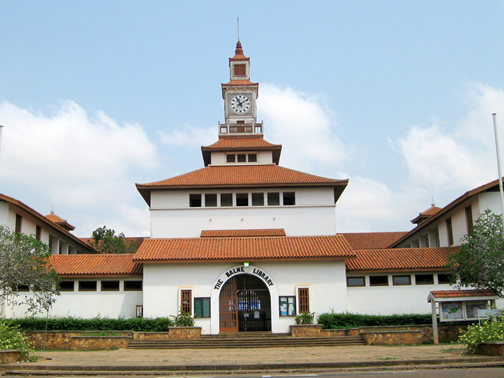Government still pays research and book allowances to academia – Ministry

The government has not reduced subventions to pay only salaries of academic staff of public universities in the country, Dr Yayra Dzakadzie, the Director, Tertiary Education, the Ministry of Education has said.
He said the government was still paying research and book allowances to all deserving academic staff of public universities.
Dr Dzakadzie was speaking at the launch of a five-year ‘Research Agenda’ of the University of Energy and Natural Resources (UENR), held at Fiapre, near Sunyani.
On the theme “nurturing innovative ideas to maximize research performance and impact for sustainable development”, the research agenda is aimed at pushing aggressive research work that is relevant and impactful for sustainable national development.
The university also launched a research fund that would drive the wheels of the scheme, build capacity, fund, support and sponsor its researchers to conduct quality research work.
Dr Dzakadzie said the government was putting up all kinds of infrastructure to make public universities function efficiently to achieve their mandate.
He lauded the transformational leadership of Professor Elvis Asare-Bediako, the Vice Chancellor of the UENR, saying “his transformational leadership is putting this university at a pedestal in the tertiary space in Ghana.
“Indeed, he is doing well. A few years after resuming office, he has made tremendous efforts to change the face of this university”, Dr Dzakadzie noted, advising the university community to support the VC to build the university into a world class institution.
In a speech read on his behalf, Dr Osei-Adutwum, the Minister of Education, explained the government had implemented a number of reforms to promote sustainable development.
Ghana is taking an important step forward in its commitment to sustainable development through the promotion of STEM education, saying by introducing STEM programmes, the country was well-positioned to promote the sustainability of natural resources and, provide access to quality education and training for all individuals regardless of their background or academic discipline.
The government has recognized the potential impact of STEM education by building 10 cutting-edge learning centres as well as restructuring many Senior High Schools across the nation with necessary instruments for teaching and learning.
Dr Adutwum the Ghana Skills and Technology Development Programme, which aims to enhance technical and vocational education and training, had also been launched by the government.
The goal, he said was to give young people the abilities and information to excel in their job and support the sustainable growth of the nation.
In addition, the government has put into effect the National Science, Technology, and Innovation Policy, aimed at encouraging scientific and technological research and development, saying its goal was to promote creativity and the creation of cutting-edge technology to address sustainability-related issues.
Prof Asare-Bediako Prof Asare-Bediako said the heart of the research agenda was the concept of nurturing innovative ideas, saying “we recognize that innovation is a key driver of research performance and impact.
“Innovative ideas can lead to breakthrough discoveries, novel solutions, and new knowledge that can transform our world. We believe that innovation can be nurtured and cultivated through a supportive ecosystem that encourages creativity, risk-taking, and collaboration” he added.
To maximize the research performance and impact, Prof Asare-Bediako underlined the need to foster a culture of innovation that was inclusive, diverse, and collaborative, emphasizing the importance create an environment where researchers and scholars from different disciplines could come together, share their ideas and expertise, and collaborate on interdisciplinary projects.
“Our research agenda aims to promote innovation through initiatives such as seed grants, innovation hubs, incubators, and technology transfer offices and we will establish partnerships with industry, government, and civil society organizations to ensure that our research has real-world applications and impacts”, he said.
Source: GNA
